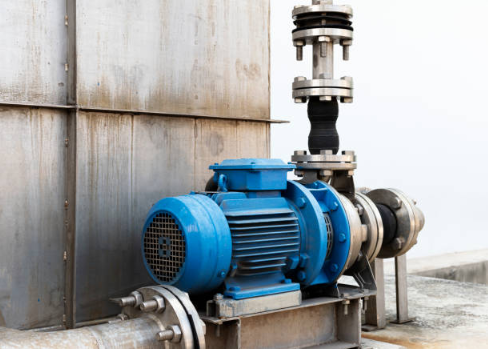In the realm of water systems, efficiency and performance are paramount. Whether it’s in residential, commercial, or industrial settings, the smooth flow of water is essential for various applications, ranging from heating and cooling to circulation and filtration.
One crucial component that significantly enhances water system performance is the circulation pump. These pumps play a vital role in ensuring the efficient movement of water through the system, thereby improving overall functionality and effectiveness.
In this article, we’ll delve into the intricacies of circulation pumps, exploring how they work, their benefits, and their diverse applications across different sectors.
Understanding Circulation Pumps
Circulation pumps, also known as recirculating pumps or circulators, are devices designed to circulate water within a closed system continuously. They are commonly employed in heating, cooling, and plumbing systems to maintain a steady flow of water, thereby optimizing system performance.
These pumps come in various types, including centrifugal pumps, axial flow pumps, and mixed flow pumps, each suited for specific applications based on factors such as flow rate, pressure requirements, and the nature of the fluid being circulated.
How Circulation Pumps Work
At their core, circulation pumps operate by creating a pressure differential within the system, which drives the movement of water through pipes, valves, and other components.
The pump draws water from a reservoir or supply line and then pushes it through the system, ensuring a continuous flow.
This circulation process helps distribute heat or coolness evenly, prevents stagnation, and minimizes energy consumption by reducing the need for constant heating or cooling.
Types of Circulation Pumps
- Centrifugal Pumps: These are the most common type of circulation pumps, characterized by their ability to generate high flow rates with relatively low pressure. Centrifugal pumps use a rotating impeller to impart kinetic energy to the water, propelling it through the system. They are suitable for applications requiring moderate to high flow rates, such as HVAC (Heating, Ventilation, and Air Conditioning) systems and water circulation in swimming pools.
- Axial Flow Pumps: Unlike centrifugal pumps, axial flow pumps operate by pushing water parallel to the pump shaft, rather than perpendicular. This design allows them to achieve higher flow rates with lower head pressure. Axial flow pumps are often used in large-scale water circulation systems, such as those found in industrial facilities and irrigation systems.
- Mixed Flow Pumps: As the name suggests, mixed flow pumps combine features of both centrifugal and axial flow pumps. They generate moderate to high flow rates while also providing significant head pressure, making them suitable for a wide range of applications, including water supply systems, sewage treatment plants, and agricultural irrigation.
Benefits of Circulation Pumps
The integration of circulation pumps into water systems offers a multitude of benefits, ranging from improved efficiency and energy savings to enhanced performance and durability. Here are some of the key advantages:
1. Energy Efficiency
Circulation pumps are designed to operate with minimal energy consumption while maximizing fluid movement. By maintaining a consistent flow of water, these pumps help optimize the efficiency of heating and cooling systems, reducing overall energy usage and operational costs.
Additionally, modern circulation pumps often incorporate advanced technologies such as variable speed drives and smart controls, further enhancing energy efficiency by adjusting pump speed and flow rate based on demand.
2. Reduced Water Wastage
In systems where water circulation is essential, such as hot water recirculation systems in buildings, circulation pumps help minimize water wastage by ensuring that hot water is readily available at the point of use.
Rather than waiting for water to heat up each time a faucet is turned on, circulation pumps keep hot water circulating continuously, thereby reducing the need to run taps to achieve the desired temperature. This not only conserves water but also saves time and improves user convenience.
3. Improved Comfort and Convenience
In residential and commercial settings, circulation pumps contribute to improved comfort and convenience by delivering prompt hot water to faucets, showers, and appliances.
Gone are the days of waiting for water to heat up or enduring cold showers during peak usage times. With circulation pumps, users can enjoy consistent water temperatures throughout their homes or buildings, enhancing overall satisfaction and comfort levels.
4. Enhanced System Performance
By facilitating the smooth flow of water, circulation pumps help optimize the performance of various water system components, such as boilers, chillers, and heat exchangers. These pumps ensure proper circulation and distribution of heated or cooled water, preventing issues such as uneven temperature distribution, system inefficiencies, and equipment damage.
As a result, water-based heating, cooling, and circulation systems operate more effectively and reliably, prolonging the lifespan of equipment and reducing the likelihood of costly repairs or replacements.
5. Versatility and Adaptability
Circulation pumps are highly versatile and adaptable, with the ability to accommodate a wide range of fluid types, temperatures, and system configurations.
Whether it’s circulating water for heating purposes, maintaining water quality in a swimming pool, or transporting fluids in an industrial process, circulation pumps can be tailored to meet specific requirements and operating conditions.
Furthermore, advancements in pump design and technology continue to expand the capabilities and applications of circulation pumps, making them indispensable components in modern water systems.
Applications of Circulation Pumps
The versatility and effectiveness of circulation pumps make them indispensable across various industries and applications. Some common uses of circulation pumps include:
1. Heating Systems
In both residential and commercial buildings, circulation pumps are integral to hydronic heating systems, which use water as a heat transfer medium.
These pumps circulate hot water from the boiler or heat source to radiators, baseboard heaters, or underfloor heating systems, distributing warmth evenly throughout the space.
By maintaining a continuous flow of heated water, circulation pumps ensure consistent indoor comfort while maximizing energy efficiency.
2. Cooling Systems
In HVAC and refrigeration systems, circulation pumps play a critical role in circulating chilled water or refrigerant to absorb heat from indoor spaces and transfer it to the cooling medium.
Whether it’s air conditioning in commercial buildings, process cooling in industrial facilities, or refrigeration in food storage and processing, circulation pumps help maintain optimal temperatures and humidity levels while minimizing energy consumption.
3. Domestic Hot Water Recirculation
Hot water recirculation systems utilize circulation pumps to ensure that hot water is readily available at faucets and fixtures throughout a building. These systems eliminate the need to wait for water to heat up, reducing water wastage and improving user convenience.
By continuously circulating hot water through the plumbing lines, circulation pumps help conserve water and energy while enhancing overall comfort and satisfaction for building occupants.
4. Swimming Pool Circulation and Filtration
In residential and commercial swimming pools, circulation pumps are essential for maintaining water clarity, hygiene, and circulation.
These pumps circulate water through the pool’s filtration system, removing debris, contaminants, and impurities to keep the water clean and safe for swimming.
Additionally, circulation pumps help distribute chemicals such as chlorine or bromine evenly throughout the pool, ensuring proper sanitation and water quality.
5. Industrial Applications
In industrial settings, circulation pumps serve a wide range of purposes, from transporting fluids in chemical processing plants to circulating coolant in manufacturing equipment.
These pumps are designed to withstand harsh operating conditions, including high temperatures, corrosive substances, and abrasive materials. PTFE Gaskets, known for their excellent chemical resistance and heat tolerance, are often used in conjunction with these pumps to ensure leak-proof seals.
Whether it’s circulating process fluids, transferring heat, or maintaining pressure in pipelines, circulation pumps are indispensable components in various industrial processes.
Conclusion
Circulation pumps play a vital role in enhancing the performance, efficiency, and reliability of water systems across diverse applications. From heating and cooling to circulation and filtration, these pumps ensure the smooth flow of water, optimizing energy usage, minimizing water wastage, and improving user comfort and satisfaction.
With advancements in pump technology and design, circulation pumps continue to evolve, offering enhanced capabilities and versatility to meet the evolving needs of residential, commercial, and industrial sectors. As the demand for efficient and sustainable water management solutions grows, circulation pumps are poised to remain indispensable components in the quest for optimized water system performance.




